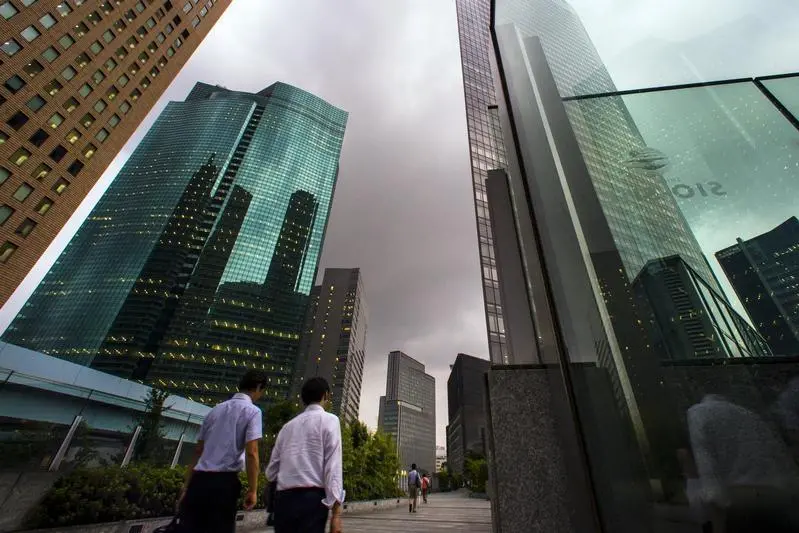PHOTO
TOKYO - Japan's core inflation slowed sharply in November to a pace unseen in over a year, data showed on Friday, highlighting easing cost-push pressures that may give the central bank more time before phasing out its massive monetary stimulus.
While service prices continued to rise, some analysts doubt whether the increase will accelerate enough to create a more demand-driven inflation seen as a prerequisite for the Bank of Japan (BOJ) to exit ultra-loose policy.
"Inflation is coming down as supply-side factors that pushed up prices fade. Meanwhile, evidence of demand-driven inflation, a by-product of strong domestic spending and wage gains, remains preciously scarce," said Jeemin Bang, an associate economist at Moody's Analytics.
"Our baseline is for the BOJ to drop negative interest rates in 2024, but we expect the central bank will maintain some level of support given the economy's weak state."
The core consumer price index (CPI), which excludes volatile fresh food but includes fuel costs, rose 2.5% in November from a year earlier, matching market forecasts and slowing from a 2.9% gain in October. It was the slowest pace of rise since a 2.4% growth marked in July 2022.
A breakdown showed goods prices rose 3.3% in November from a year earlier, slower than a 4.4% gain in October, due to falling fuel costs and moderating hikes for food.
But services inflation accelerated to 2.3% in November from 2.1% in the previous month, underscoring the BOJ's view that prospects of higher wages are prodding some firms to pass on rising labour costs.
"We expect companies to keep raising service prices, though there's no change to our view that overall inflation will slow as a trend," said Takeshi Minami, chief economist at Norinchukin Research Institute. "The BOJ probably won't normalise policy for the time being."
Japan has seen inflation hold above 2% since April last year and some firms have signalled their readiness to keep raising wages, increasing the chance the BOJ will finally abandon its status as a dovish outlier among global central banks.
But the BOJ kept ultra-loose policy intact on Tuesday and Governor Kazuo Ueda left no hints of an early exit, stressing that the bank needed to continue scrutinising whether a positive wage-inflation cycle will fall in place.
Minutes of the BOJ's October meeting, released on Friday, showed board members remaining divided on how soon Japan can see conditions for an exit fall in place.
More than 80% of economists polled by Reuters in November expect the BOJ to end its negative rate policy next year with half of them predicting April as the most likely timing. Some see the chance of a policy shift in January.
(Reporting by Leika Kihara and Takahiko Wada; Editing by Christopher Cushing)





















